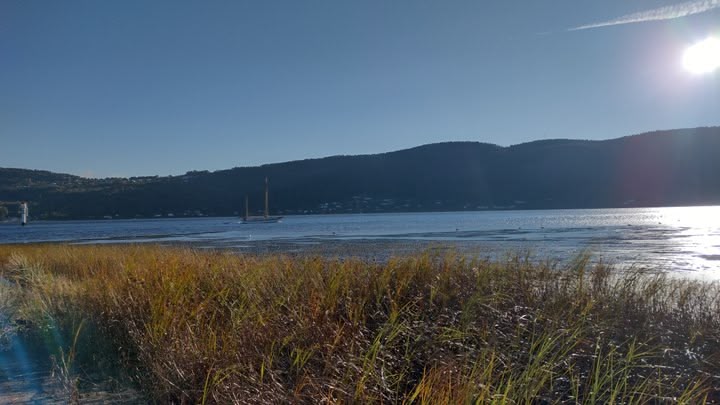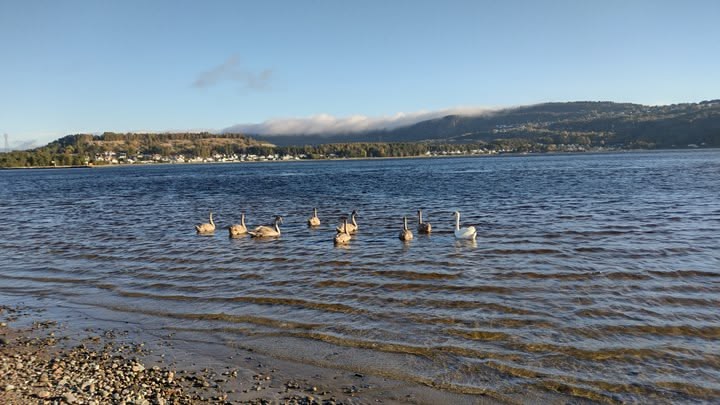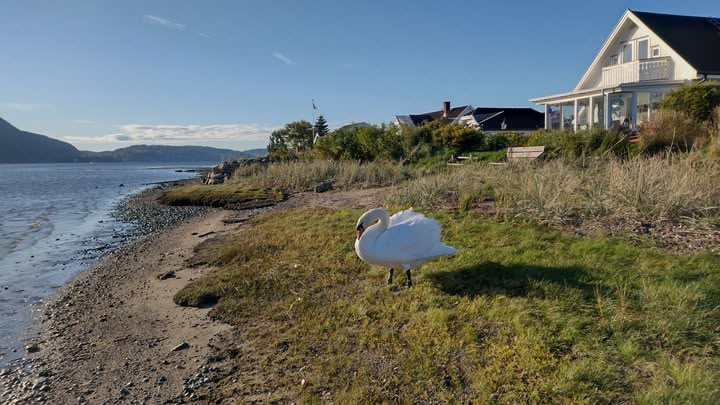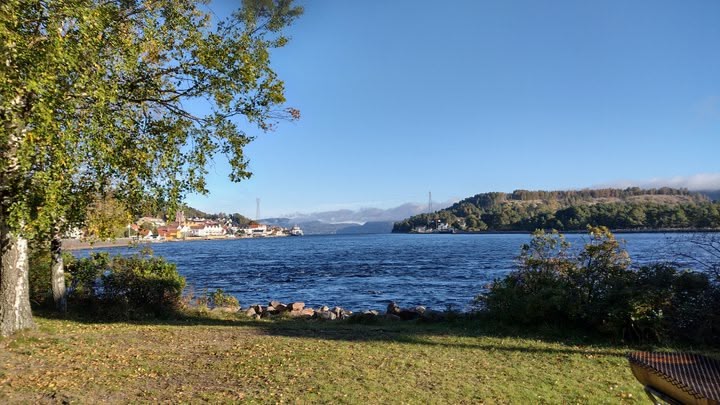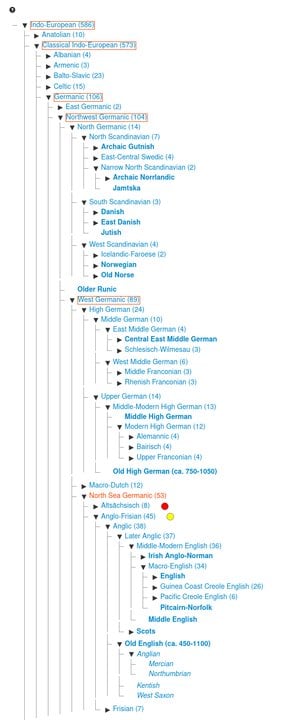Nina's Blog - Wednesday 2nd October 2024
Wednesday 2nd October 2024, 10:04
Gloriously sunny. But the sky was clear overnight so it's only 5C and there is a stiff northerly breeze blowing.
A sailor going against the trend, going out on the water instead of taking the boat out of the water. Heading south down the fjord
The Swan family again, but notice that Mr Swan isn't in the picture
That's because it seems that I had come across their nesting spot. He wasn't at all pleased to see me walk past
Looking north toward the inner fjord
Gloriously sunny. But the sky was clear overnight so it's only 5C and there is a stiff northerly breeze blowing.
A sailor going against the trend, going out on the water instead of taking the boat out of the water. Heading south down the fjord
The Swan family again, but notice that Mr Swan isn't in the picture
That's because it seems that I had come across their nesting spot. He wasn't at all pleased to see me walk past
Looking north toward the inner fjord

